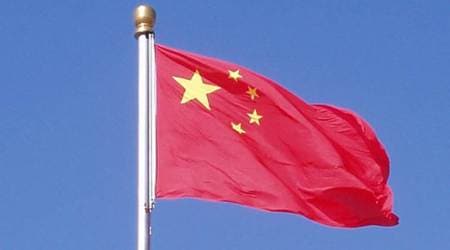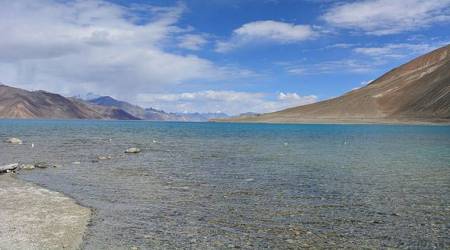 Doklam standoff: Japan’s support to India and Bhutan on Doklam comes at least three days after Indian and Chinese boat patrols clashed briefly at Ladakh’s Pangong lake on Tuesday.
Doklam standoff: Japan’s support to India and Bhutan on Doklam comes at least three days after Indian and Chinese boat patrols clashed briefly at Ladakh’s Pangong lake on Tuesday.
Nearly two months into the Doklam standoff between Indian and Chinese troops, Japan has given its unequivocal support to India and Bhutan through diplomatic channels, top sources informed the Indian Express. This fresh development comes a month ahead of Japanese Prime Minister Shinzo Abe’s scheduled visit to India from September 13 to 15. The Japanese Ambassador to India Kenji Hiramatsu and his team of diplomats have conveyed Tokyo’s position to New Delhi and Thimphu in the last couple of weeks, the Indian Express has learnt.
Japan’s support to India and Bhutan on Doklam comes at least three days after Indian and Chinese boat patrols clashed briefly at Ladakh’s Pangong lake on Tuesday. Following this incident, China’s Foreign Ministry issued a statement flatly denying any such reports. Army officers from both sides also met in Leh’s Chushul sector where they discussed ways to maintain tranquility along the India-China border. When Chinese Foreign Ministry spokesperson Hu Chunying was asked for a comment on the same, she replied: “I am not aware of the information.” Earlier, the PLA also declined the Indian invitation to participate in ceremonial border meetings on the occasion of India’s Independence Day. This is the first time since 2005 that the PLA has declined to meet with their Indian counterpart. Also Read: Japan throws weight behind India and Bhutan, says no side should try to change status quo by force
Here are the top developments in the Doklam standoff today:
1. Japan, which has been watching the situation “very closely”, feels that the ongoing stand-off can affect the stability of the entire region.
2. Tokyo, which has had similar territorial disputes with China in the recent past, is of the view that in disputed areas, “all parties involved should not resort to unilateral attempts to change the status quo by force”.
3. Japan’s support comes nearly three days after the standoff between Indian and Chinese boat patrols at Ladakh’s Pangong Tso lake.
4. South Block sources told the Indian Express that Japan itself has been at the receiving end of “Chinese expansionism” and it understands New Delhi’s position better than many. Government sources pointed out to Japan’s difficulties between 2012 and 2014, when ties between China and Japan were frayed by a territorial row over the Senkaku/Diaoyu islands.
5. Japan has also conveyed that they understand that the area is disputed between China and Bhutan and that both countries recognize the existence of a dispute.
6. Commenting on China’s claim about India’s role in the Doklam standoff, Japan has also conveyed that India is “involved” in this incident “based on bilateral agreements” with Bhutan.
7. Tokyo has also lauded the Indian approach that New Delhi will continue to engage in a dialogue through diplomatic channels to find a “mutually acceptable solution”.
8. Japan and Bhutan have had a very strong bilateral relationship over the last three decades. Thee have been three imperial visits from Japan to Bhutan: in 1987, 1997, and the last in June this year when when Princess Mako from the Japanese royal family visited Bhutan. The Bhutanese Royal couple also visited Japan and to Fukushima in November 2011 and the Bhutanese King had addressed the Japanese Parliament.
9. Meanwhile, commenting on the latest Ladakh clash, Ministry of External Affairs today in a media statement said: “I have not confirmed stone pelting or use of rods, just said there was an incident.”
9. The Doklam standoff began after Indian troops stopped the Chinese army from building a road in the disputed area. China claimed that they were constructing the road within their territory and has been demanding immediate pull-out of the Indian troops from the disputed Doklam plateau. New Delhi has expressed concern over the road building, apprehending that it may allow Chinese troops to cut India’s access to its northeastern states.
10. Of the 3,488-km-long India-China border from Jammu and Kashmir to Arunachal Pradesh, a 220-km section falls in Sikkim. China also claims that Thimphu has no dispute with Beijing over Doklam.

